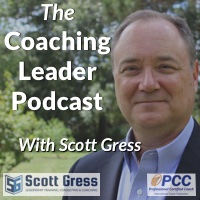 “It can’t be me. I’m not the problem. I preach evangelism. I preach serving. I work a lot of hours caring for others. I can’t do anything more. How can I be the problem? In fact, I’m a little bit offended even being asked that question! I’m exhausted. I can’t work any harder! There’s nothing more that I can do!”
“It can’t be me. I’m not the problem. I preach evangelism. I preach serving. I work a lot of hours caring for others. I can’t do anything more. How can I be the problem? In fact, I’m a little bit offended even being asked that question! I’m exhausted. I can’t work any harder! There’s nothing more that I can do!”
No matter who is reading this, whether a pastor, teacher, or a dedicated lay person, no doubt you are a good pastor, professional church worker, christian and person. You love others. You care for others. You sacrifice personal time and energy to love the unlovable. You work hard at doing the gracious, caring and loving thing. You endure criticism, often undeserved criticism. You absorb those blows from others and don’t respond in like manner. You care deeply for your church.
So how could you be the lid to growth?
Let’s look a little bit deeper by asking another question: What led you to that choice to be a professional church worker (or dedicated lay person for that matter)? For many it is the desire to serve and make a difference in the lives of others. For many of you, from early on you stepped in and got busy. You ended up cleaning up after the event. You made the phone call when no one else did. You taught the class when no one else would. You became the chairperson or committee head when they needed help. You didn’t do it for ego (not too much anyway) but because you simply wanted to help.
Those choices led you to go to school to become a pastor or teacher. Or for the lay person those choices continue to put you on the track to be a doer and fill the void with dedication and commitment to teach that Sunday school class or lead that committee or board and so much more.
“So what’s the problem? How can such a person be the lid?”
The simple truth is that one person or pastor or even a staff of pastors (or a team of dedicated lay people) can only do a particular, limited amount of ministry. They can only care for so many members or the caring suffers. They can only teach so many classes. They can only organize and lead and run so many programs and events. There is a “lid” to what can be done. The size of the church will settle at that corresponding that “lid.” That’s why many churches are at the 75 to 100 people in worship size.
“So what’s the problem with that? I like our church the way (size) it is.”
You might be comfortable with the number of people in worship and the amount of activities on your calendar. You may like smaller and more intimate compared to larger and more complex where people don’t know everyone (or most everyone). But how does that align with Jesus desire that all would be saved and come to the knowledge of the truth (1 Tim 2:4) and make disciples of all nations (Matt 28:19)? And if Jesus came to earth because God so loved the world (John 3:16) then how is this “comfort” compatible with this mission of God? It isn’t. God is not comfortable with this “lid” and neither should we. Growing more disciples whether it is larger churches or more churches doesn’t stop until we are called to heaven or Jesus comes.
Ok, so if we are to grow as disciples and make more disciples…then how am I the lid?
The question is, what are we creating if we (whether pastor or teacher or active/dedicated lay person) are always the “doers” of the ministry? We unintentionally (or intentionally) create a needy consumer mentality of the members. Why? Because we are “doing it” for them. Have you ever heard complaining that you didn’t visit someone or pray for someone? Have you ever heard people fuss about there not being a men’s group, ladies group, youth group, or this or that activity or program? Perhaps you immediately felt pangs of guilt and then quickly came defensive thoughts that sounded something like, “I can only do so much!” Exactly. And people are being “trained” to receive rather than give. People are being taught to be passive rather than active. People are learning to expect to be taken care of rather than to stretch and grow. We may be “teaching” as Jesus says in Matt 28:20 but probably not “teaching them to obey”!
And watch out for the defensive thought that says, “but no one wants to volunteer!” (and without saying it, you have some negative labels about the passive members too…lazy, ungrateful, complaining, etc.) But whose fault is that? They have been “trained” to sit and receive and have it done for them. Their understandable expectations are that the “active” lay people who “always do everything” around here will get it done. Their understandable assumption is that the pastor will do it. So why would they think anything differently, let alone step up? Why would they do something so foreign to their assumptions and expectations of how we do church? In the end, we leaders (clergy and lay) have to admit we have created the culture and expectations and assumptions of the passive and sometimes demanding members.
So even if you like a small church. There are some very unhealthy assumptions that are very likely going on. You are very likely the lid and may very well be unaware of what you are causing and allowing. And if you are unaware of the problem, then you certainly are not going to look for options and alternatives. Oh, you may preach service and evangelism. You may even have a class or two. But your behavior betrays you. You are busy relieving people of the need to step up and grow. That’s how you are built. You’ve always been the doer. You may wish that people would follow your example but let’s be honest, that doesn’t really happen. The serious problem is that you as a dedicated, humble, hard working “doer” clashes with one who develops, engages, nurtures other disciples or leaders. You didn’t experience it so it is probably not going to be repeated by you.
“Okay, so maybe I am the lid. What do I do now?”
Ask yourself: What am I doing that relieves people of doing it themselves or having others do it? Who can I bring with me to observe and grow in participating in ministry? What are those things that only I can do? How can I share the work, invite others to join me, celebrate their small steps?
The good news is that caring “doers” of ministry only need to make a small shift. The shift is from shepherding others and caring for them in their need, to shepherding others in growing into caring for others (who care for others, etc). Rather than being the “primary care giver” ourselves, we can care for people as a shepherd who cares for others as they grow in service. It is “teaching…to obey” (Matt 28:20). It is “equipping the saints” which can be done in a pastoral, shepherding manner.
Done carefully, slowing and deliberately, one person at a time, ministry will multiply. Our capacity as churches will scale dramatically. Personal discipleship and growth will increase as people mature less by just sitting and learning and more through learning by doing. It is about apprenticeship. Ownership of the ministry will increase, joy will increase, stress will decrease. Your long hours will become manageable. Will some be uncomfortable with the shift. Yes, so care for them while shepherding the growth and participation of others. Lift the lid and God’s praise will increase!
Sign up for our email newsletter with new blog posts and information and announcements:
Scott Gress is called by Lutheran Counseling Services and partners with the FL-GA District of the Lutheran Church as an independent contractor. He specializes in Leadership Training, Consulting, Coaching and Coach Training. Contact Scott to continue the conversation or experience a free sample coaching session. 561-542-4472, scottgress@me.com or scottgress.com
"Coaching leaders of leaders"
Check out the new: Coaching Leader Podcast!

